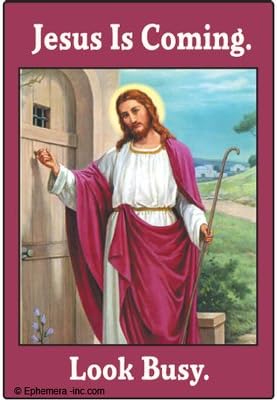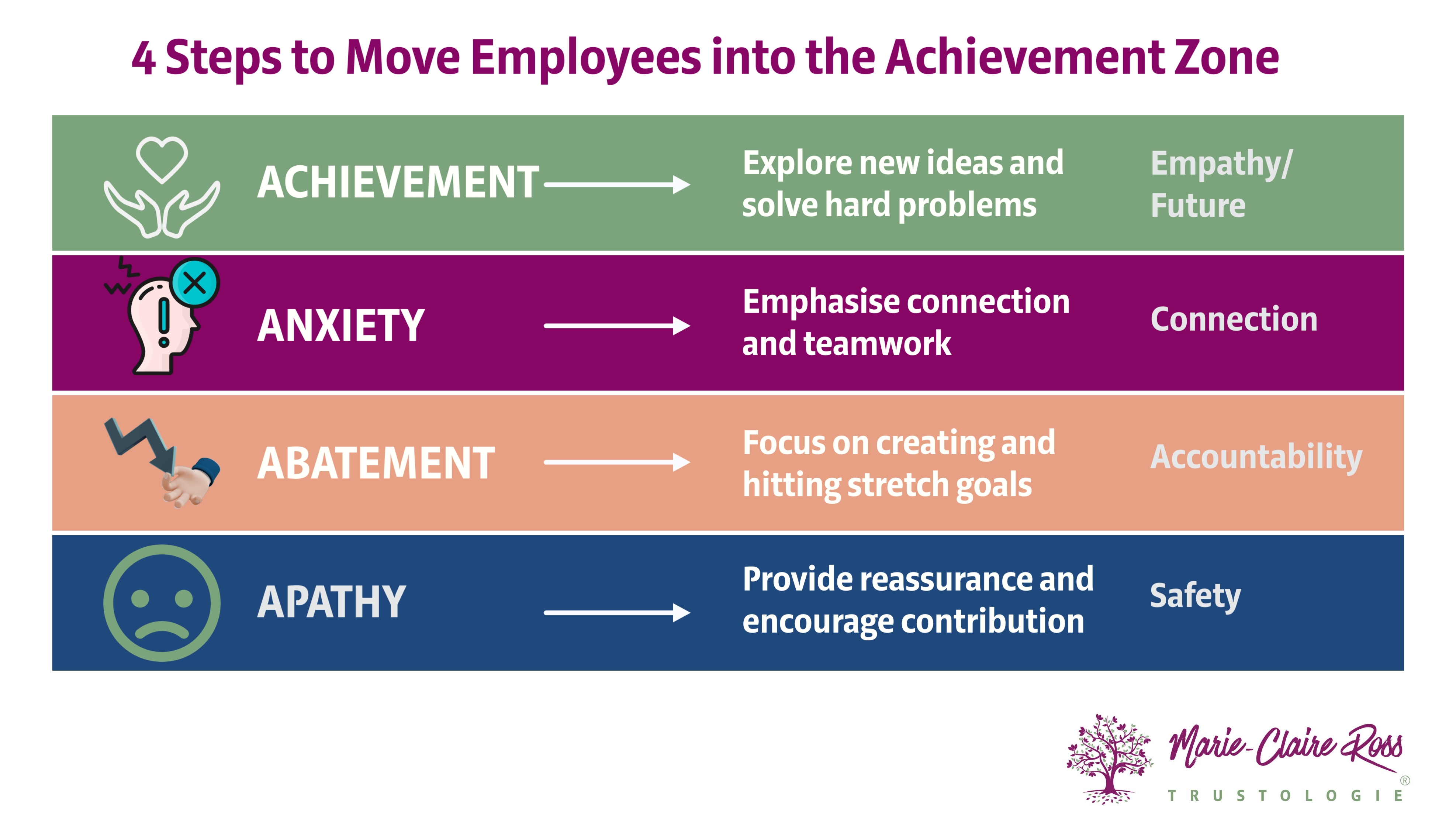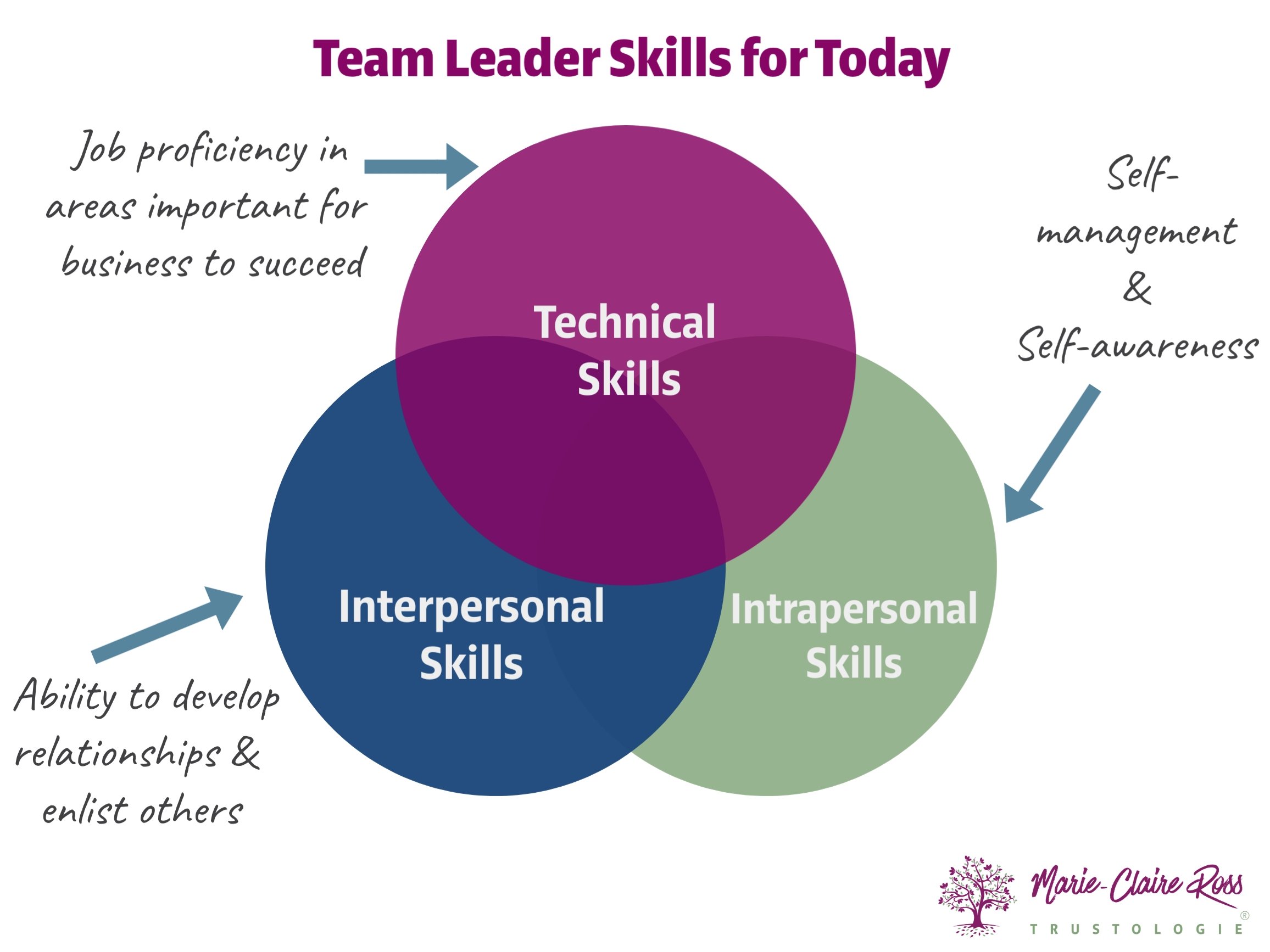11 min read
4 Practical Strategies for Better Emotional Management in the Workplace
I have a friend who often finds herself at the mercy of her emotions. Recently, she called me to rehash a confrontation she’d had with a group of...
Develop leaders, strengthen executive teams and gain deep insights with assessments designed to accelerate trust and performance.

Transform how your leaders think and perform with keynotes that spark connection, trust and high-performance cultures.

Explore practical tools, thought-leadership and resources to help you build trusted, high-performing teams.

Trustologie® is a leadership development consultancy founded by Marie-Claire Ross, specialising in helping executives and managers build high-trust, high-performing teams.

4 min read
Marie-Claire Ross : Updated on July 18, 2023

In today's fast-paced world, the value of being busy is deeply ingrained in both our personal and professional lives. We often feel the need to highlight our importance by constantly proclaiming how busy we are in our daily routines.
While it could be argued that being busy is a decision (not a mark of specialness), in workplaces being busy is often confused with being productive.
Unfortunately, assessing people on whether they are working by how busy they seem to be creates an environment where employees engage in productivity theatre, also known as performative work.
Productivity theatre occurs when employees prioritise superficial tasks to give the appearance of being busy, instead of focusing on more valuable and impactful work that drives meaningful business outcomes. While this may seem harmless in small amounts, it can actually pose a significant threat to a company's overall efficiency and effectiveness.

To gain insights into employees' habits of productivity theatre a survey was conducted by Visier in February 2023. It involved 1,000 full-time employees based in the US and found that 43% of employees spend more than 10 hours a week on productivity theatre tasks.
This includes responding to emails promptly when a rapid response wasn't needed (42%), attending unnecessary meetings (36%), scheduling emails to be delivered at a future time (36%), keeping laptop screen awake when not working (28%) and spending excessive time on administrative tasks (23%). Interestingly, the percentage remained consistent across all types of work arrangements, whether employees were working remotely, in-person, or in a hybrid setting.
Why do employees engage in productivity theatre? The top reasons are visibility and professional success. Office based workers were more paranoid about visibility (37%), compared to hybrid (28%) and remote (25%). Indicating that office based workers tend to put in more productivity theatrics than remote workers. It's probably why a lot of us were more productive when we were forced into working from home.
So, who exactly are employees hoping will take notice of these behaviours? According to the survey, seven out of 10 respondents mentioned their manager, with their peers following closely at 39%. Additionally, 32% mentioned department heads, while 29% hoped that their company's senior leadership team would observe their efforts.
Of course, productivity theatre is nothing new. Many years ago, I used to get frustrated by my peers who would stay back late playing covertly playing Solitaire to keep up the appearance to the CEO they were working late. Frustratingly, those who pretended to be busy by visibly working longer hours, were the most likely to be promoted. They played the game and won. And I'm not just talking Solitaire.
What is new is that we are now more willing to understand the issue more and do something about it. As a leader, here are three things you can do to reduce people pretending to be productive.
1. Increase Psychological Safety - Currently, productivity theatre is being motivated by the fear of being retrenched, sheer exhaustion or concerns about proving the benefits of remote work.
This seems to be more prevalent when employees don't feel they can be honest or vulnerable when there are issues. For many, it's easer to maintain the illusion of being busy, so it gives them time to feel that they are trusted in the workplace.
It's also common in what I call Apathy or Anxiety Zones where there is low psychological safety. While for Abatement Zone teams, that have high psychological safety and low accountability, it's become an entrenched team habit to be busy on non-essential tasks. This negatively impacts accountability, as team member's claim to always be too busy to work on essential delivery.
What's most important is that as a leader you have done to work to trust your people to work. Any signs that you don't trust people, will increase people engaging in productivity theatre.
It also means be careful not to reward people who are more likely to play the game of looking busy. I used to get really frustrated when my colleagues would be publicly recognised by the CEO in meetings "Tom worked here until 8pm, while you all went home at 6pm." Rewarding fake employee behaviour, while others work more effectively, contributes towards a toxic culture
2. Improve Prioritisation - A lack of safety often means employees have trouble with prioritisation. What you will commonly see is people are stuck in their limbic brain. This effectively means they are in flight, freeze or fright mode. So they work on the wrong tasks, don't know what to do or take too long on tasks that aren't important.
Managers have a responsibility to prioritise the work to be done, help people to understand why the work is important (the meaning behind the work) and allocate resources to ensure those tasks get done efficiently.
Yet, this means managers need to figure out what really matters. Often times, when employees are pretending to be productive it's because they don't really know what's expected of them. Help people understand the value their work brings to others. If you want tips, you can find out more in my book, Trusted to Thrive. Download a free chapter here).
This means getting yourself clear, so that you can provide clarity on expectations and priorities.
3. Make slow times okay - There will be times when workloads are high and times when they are low. Make it okay for people to make use of quieter times (and not feel guilty).
Talk to your team in weekly meetings about workloads. Positively address times when people have a reduced task list and either get them to help others or work on tasks they never get to during busy periods. Acknowledge when people have been working really hard and it's okay for them to take a bit of a breather.
Give people permission to clean their desk, organise files or work on strategic long term tasks that need quiet thinking and reflection.
Empower individuals to engage in activities that will enhance their productivity during times of high workload.
Furthermore, if you have built safety in your team and made it okay for people to not have a huge task list 100% of the time, talk about productivity theatre. Share when you have engaged in it and why you've done it (because we have all done it at some stage in our careers). Get people to share their motivators and work with your team to understand the importance of doing good, rather than looking good.
Leaders who have trust in their team members, establish explicit guidelines and priorities, empower individuals to understand the significance of their contributions, and unite everyone towards a shared purpose and values will successfully draw the curtain on productivity theatre.
If you want more leadership tips to be a better leader, consider the Tribe of Trusted Leadership Mastermind program. Enrolments closing soon.

11 min read
I have a friend who often finds herself at the mercy of her emotions. Recently, she called me to rehash a confrontation she’d had with a group of...

9 min read
True leadership presence isn’t a performance or a set of charisma hacks; it is the felt experience of who you are being in the room. By cultivating...

13 min read
As teams return from their summer (or winter) break, you may notice subtle shifts in your team’s energy. Even if the end of year was positive, a new...

We all love to hate meetings. Yet, when executed effectively, they enhance team unity and harness the collective intelligence of your people.

We have all heard of micromanagement - and how negative it can be to building trust in teams. But what about under-management?

As a leader, your job is to create a positive work environment where people work together in service of a shared goal - a high-performance atmosphere